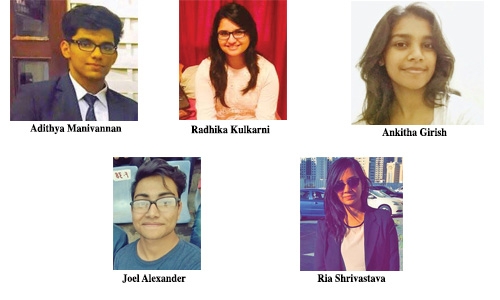Tracing education system based on practical knowledge, passion
Manama : Knowledge is perhaps the most valuable possession a human could have. But for today’s youngsters, it is just part of a routine set forth by their parents. Only a few tend to break away from the pattern, while the rest are more like mindless clones jumping on the bandwagon.
Going to school or college, getting a job etc are no longer driven by ambitions. It seems that students at primary classes have more dreams and aspirations than today’s youth. What happened to these students once they grew up and what has made them give up their passion is something that needs to be scruntinised. Even when you tell them there are more career options than ever before, they still tend to pick up the popular options of engineering or accounting.
DT News talked to some high school graduates from the Island on their experience with the schools and what they felt should be changed to make it better.
One of the students, Adithya Manivannan, said that theoretical knowledge is given more importance over practical knowledge.
“Nothing is taught for the purpose of understanding and rote learning is the option available. Teachers are aware of the patterns in exam papers and those questions are given importance. In India, to be knowledgeable means you need to have high marks. But when you go abroad for higher studies, even the basic concepts appear to be Greek and Latin to you. Sure some things are familiar but it’s really difficult. The day people realise being an engineer or doctor isn’t the only way to be considered knowledgeable is when education can become better,” he added.
Another student, Radhika Kulkarni, pointed out that the educational system is not perfect.
“The education system comes with its own faults and fallacies. It is a system where cramming is encouraged just for the sake of marks rather than lifelong learning. Limited seats in colleges lead to unhealthy competition among candidates. Schools do try to focus on maintaining the standards and to keep the morals intact, but the system compels the students to use malpractices sometimes to excel in the rat race,” she said.
Meanwhile, Ankitha Girish said the classroom lectures often lack student-teacher interaction, making it boring.
“Educational methods adopted today are improving, yet they have their disadvantages. Study load on students is very high from a very young age. Due to this pressure, instead of finding it fun, they begin to dislike learning. The curriculum taught are often not updated with the recent developments,” she added.
Another student, Joel Alexander, pointed out that one of the major flaw is lack of hands-on project-based learning.
“Even at top institutes, students are force-fed a few kilos of textbooks and are absorbed into fields irrelevant to their subject. There is also the problem of low quality, money-making institutes that are popping up. It’s no secret that the education industry has long lost its noble cause and is more of a business now,” he added.
Ria Shrivastava opined that grades are the focal point of today’s education system and everything else revolves around them.
“Grades are given priority over knowledge. Due to this, students resort to coaching centres and have little time left for pursuing their passion. The sudden transition to college life doesn’t come easy because neither are we capable of understanding our core subjects in detail, nor do we get selected into our preferred cultural societies due to lack of practice. Schools should focus more on intensification of student’s intellect rather than their grades,” she said.
The present system where a student with the highest mark enters the best institute renders the purpose of gaining any education pointless. While schools have made sure to give the students their graduate certificates, it is important to ponder if they are really worthy of it.
It should also be analysed whether the fresh batches of students graduating every year are able to contribute positively to the society or that we just produced another batch of mindless robots.
It’s not about the grades; it’s about the knowledge received. Only when everyone can accept this fact, one would be able to see any real changes.
Related Posts

